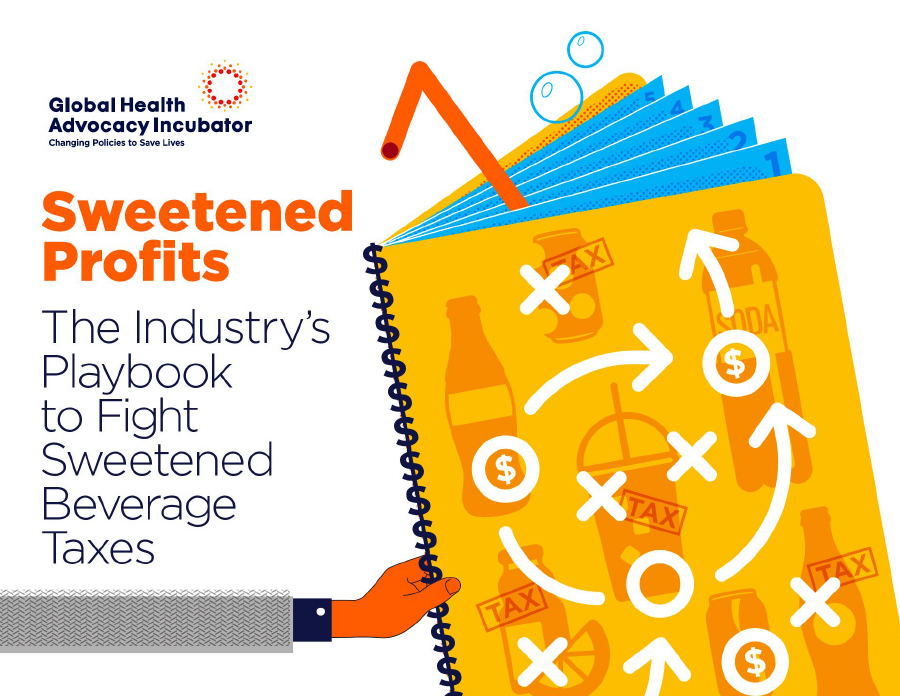Sweetened Profits: The Industry’s Playbook to Fight Sweetened Beverage Taxes

Sweetened beverage companies, often known as Big Soda, are engaging in a high stakes battle to protect their profits at the cost of public health. From sponsoring sports events to skewing scientific research, and even manipulating tax policies to favor their interests, Big Soda actively works to derail sweetened beverage (SB) taxes. Across the globe, health advocates are recognizing the threat and urging governments to take a stand.
The Problem
The sweetened beverage industry's response to SB taxes reveals a deep-seated pattern of practices aimed at protecting and increasing profits at the expense of public health and good governance. A significant part of the ultra-processed food and beverage industry actively undermines policies that threaten its interests by deploying a host of aggressive strategies.
These corporations leverage their considerable resources to gain influence over policy-making processes, effectively sidestepping regulations intended to curb the consumption of their unhealthy products. Through a mix of legal threats, economic fear-mongering and corporate washing, the beverage industry positions itself as a victim of over-regulation while simultaneously downplaying the detrimental health and environmental impacts of its products.
The industry's continued resistance to SB taxes and other regulatory measures underscores a pressing need for global action. If unaddressed, the beverage industry's interference will continue to shape and reinforce unhealthy dietary patterns, exacerbate the burden of non-communicable diseases and undermine efforts to promote a healthier, more sustainable world.

Key Findings
The report delineates the pervasive strategies used by the SB industry to oppose sugar taxes, revealing the significant impact these tactics have on public health efforts:
Global Examples of SB Tax Opposition
Throughout 2023, GHAI documented the SB industry's tactics to oppose SB taxes across numerous countries. This report collates instances from diverse nations, providing insight into the industry's multi-faceted approach to influence consumer behavior and policymaking.
All the information included in this report has been obtained through ongoing social listening, media monitoring and direct observations from public sources.
Some examples of SB industry’s tactics to oppose SB taxes:
Strategy #1


Strategy #2


Strategy #3


Strategy #4


Strategy #5


Call to Action
As Big Soda increases the level of sophistication in its strategies to avoid SB taxes, policymakers, advocates and the public health community must work together to protect SB tax policies to effectively defend human health over private and economic interests. Civil society and governments can defend SB tax campaigns through three critical categories:
- Protect the Tax Design: ensure it will have an optimal public health outcome that guarantees the human right to food and nutrition, covers all SBs and disincentivizes the consumption of SBs without promoting reformulation.
- Safeguard the Policy Decision-Making Process: prevent industry influence from undermining high standards and best practices of the tax design and opposing self-regulation solutions. Prepare to protect the SB tax from deceptive industry claims and to defend it against legal challenges.
- Leverage Opportunities for Civil Society to Defend SB Taxes: expose industry interference attempts to weaken or block the tax and hold decision-makers accountable to legislate based on evidence that is free of conflict of interest. Create strong narratives that build a public debate around the need for SB taxes and harmful health and environmental impacts of SBs and SB production.
Together, by taking these steps, governments and CSOs can make significant strides in protecting public health, reducing the burden of NCDs and ensuring that health policy is made in the interest of the people, not corporations.
Download the Report
Watch Webinars
Advocates share their experiences with industry interference in their countries and actions they took to counter it.






